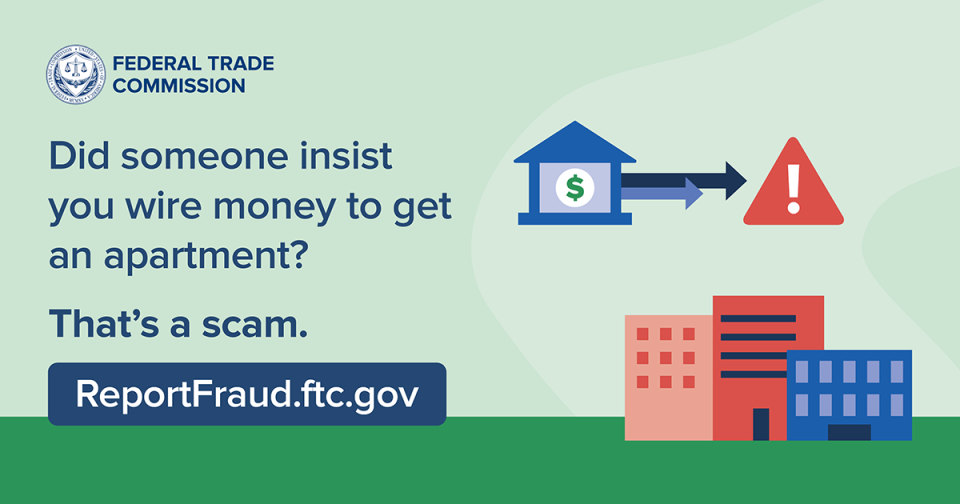You’ve found it: A listing for the perfect off-campus apartment. The rental agent told you to send a security deposit by wiring money. Sound fishy? That’s because it is. But can you spot other rental listing scams — before you pay?
Scammers know that students may be looking for housing off-campus. Some scammers hijack real rental listings — changing the contact information and reposting them on different rental sites. Then they charge you for fees, deposits, or even rent for homes that aren’t actually up for rent.
To avoid rental listing scams:
- Do some research. Search online for the management company name plus words like “review,” “complaint,” or “scam.” If you find bad reviews, you may want to look elsewhere.
- Verify who and what. Call the number on the management company’s website — not the one in the listing — to make sure the listing agent works there. Check to see if the home’s address is on the company’s website. If it isn’t, it may be a scam.
- Visit the rental in-person. Check out the apartment yourself (or send a trusted friend) to make sure it is what’s been advertised. If you can’t go in-person, ask your school about other options. If the landlord insists you pay a fee or deposit before they show you the place, keep looking. That’s most likely a scammer.
- Pay by credit card — it’s the safest way. Scammers insist that you to pay in ways that make it hard to get your money back — like wire transfers, cash, cryptocurrency, or through payment apps like CashApp, Venmo, or Zelle. Even if they say the money is refundable, you’re not likely to ever get it back.
Did you spot a scammer’s listing on a rental website? Report them to the website or group administrator. Then tell the FTC at ReportFraud.ftc.gov.


Great article, we really enjoyed reading it and think it is highly relevant to what is happening in the industry. Please let us know if we can help in any way.